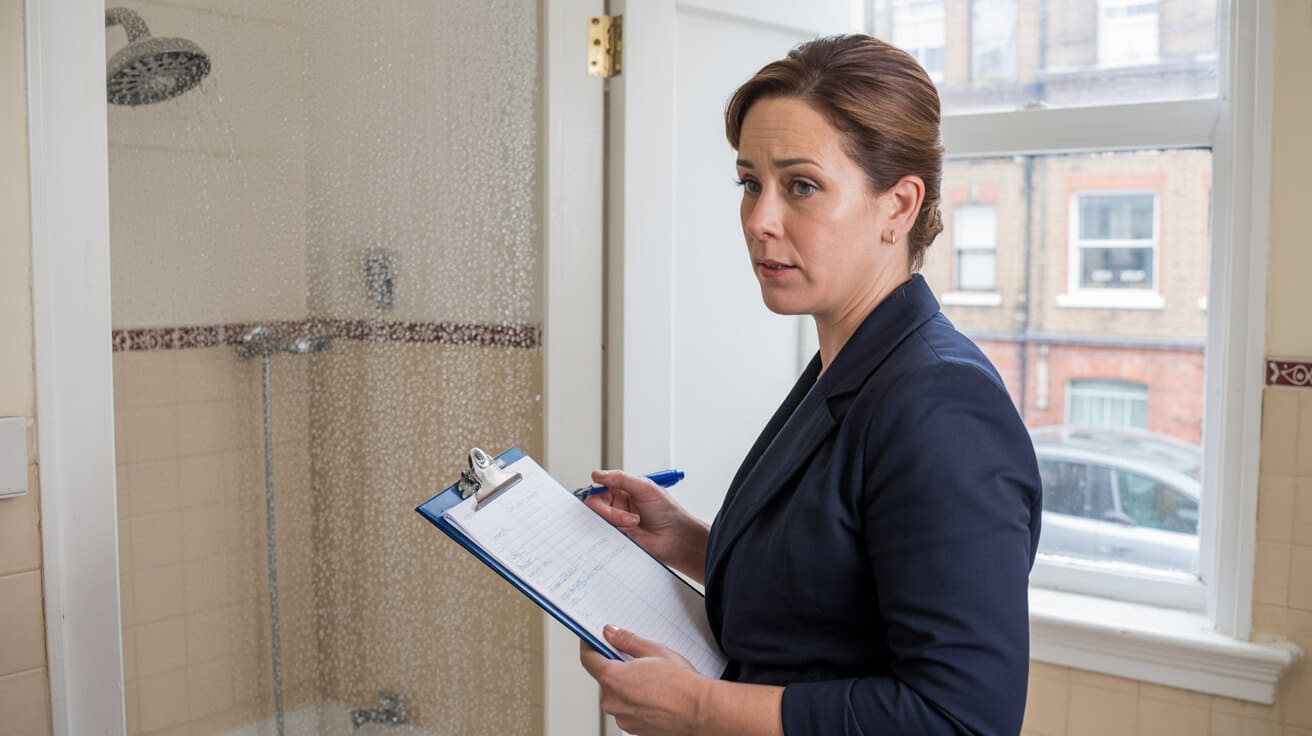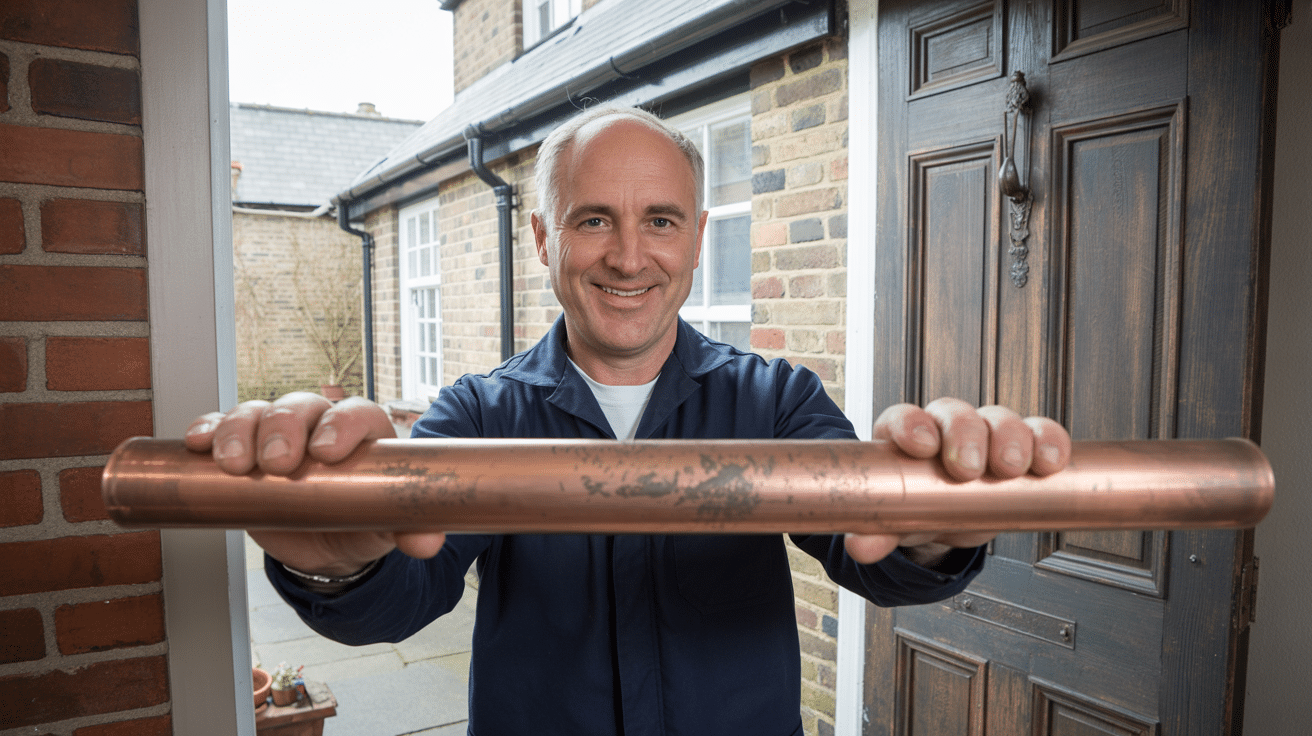 Do I Need Building Regulations Approval For Boiler Replacements And Electrical Work
Do I Need Building Regulations Approval For Boiler Replacements And Electrical Work

Why Building Regulations Approval Isn’t Just “Red Tape” for Boiler Replacements and Electrical Work
Property ownership should feel like progress, not paperwork. Yet the moment you talk boilers or electrical upgrades, building regulations loom over every decision. Is the hassle just bureaucracy—or is there an actual cost to cutting corners?
Lost paperwork can cost more than the work itself—especially when you least expect it.
You don’t just face a checklist from the council. The real stakes are higher: missed certificates delay mortgage deals, unapproved works void insurance, and skipping safety rules can expose you (and your tenants, employees, or buyers) to hidden harm. Red tape? Only for those who treat compliance as an afterthought rather than the asset protection it is. When the law, property value, and real-world safety all depend on the right process, getting informed means future-proofing your investment—not just ticking a box.
What Types of Boiler and Electrical Work Actually Require Building Regulations Sign-Off?

It’s tempting to treat every maintenance job like a quick fix, but building regulations draw a sharp line around upgrades that affect safety, efficiency, or core utility systems. These aren’t optional hurdles—they’re risk philtres that protect your investment and reputation.
Boiler Work—What Triggers Building Control Notification?
Every replacement or new boiler, whether gas or oil, legally requires both compliance with technical standards and official notification through Building Control. Think of it this way: even a like-for-like swap must be registered, with compliant installation and a valid certificate. That piece of paper isn’t just admin; it’s your protection if anything goes wrong—or when you want to sell.
- Gas and oil boilers: All replacements or new installations.
- Flue and ventilation changes: Any alteration to exhaust or venting (e.g., from balanced to open flue).
- Conversion or relocation: Moving from one boiler type to another or switching fuel.
Skipping formal approval is rarely invisible. Sooner or later—insurers, lenders, or buyers will demand evidence.
Electrical Work—What Qualifies as “Notifiable”?
Not all wiring jobs are equal. The term “notifiable work” is key: these projects absolutely require Building Regulations certification.
- New circuits: Adding power or lighting where none existed before.
- Consumer unit/fuse board upgrades: Full or partial replacements, relocation.
- Special locations: Any work in bathrooms, kitchens, outdoors, or wet areas.
Seemingly “minor” jobs can escalate—like adding a socket to a kitchen or wiring in an outdoor garden light—triggering the need for compliance. These boundaries shift as the rules evolve (the 18th Edition BS 7671 sets the current bar), so resting on “last time” logic is a fast route to expensive mistakes.
Most insurance claim refusals and failed sales trace back to missing compliance, not faulty workmanship.
How Self-Certification and Local Authority Notification Actually Work

The route to compliance isn’t a one-size-fits-all. Who you choose for the work determines whether the process is hassle-free or a bureaucratic marathon.
Using a Scheme-Registered Professional—The Compliance Fast-Track
Professionals under Competent Person Schemes (Gas Safe, NICEIC, OFTEC) make approval seamless:
- The installer completes compliant work, notifies Building Control, and issues you the official compliance certificate—no chasing forms, no waiting for inspections.
- That certificate lives with your property documents. Lose it and you risk dealing with “regularisation” or, worse, a collapsed transaction.
DIY, Handyman, or Non-Registered Contractor—Prepare for Paperwork
If you or your tradesperson aren’t accredited, responsibility lands squarely on your desk:
- You must notify the local authority before beginning regulated work.
- That means raising a Building Notice, paying a fee (often between £150–£400+), and waiting for council inspections.
- Mistakes or incomplete documentation can mean rework, delays, or forced removal.
Paying for expertise isn’t about skill—it’s about a headache-free compliance chain and airtight documentation.
Which Electrical Jobs Don’t Require Building Regulations Approval—and What’s the Danger Zone?

Not all repairs or upgrades set off the compliance alarm. But the risk of misunderstanding is real: incorrectly assuming a job is “minor” can lead to future headaches.
Non-notifiable (permit-free) jobs:
- Direct like-for-like swap of a faceplate, pendant, or standard socket (barring wet zones).
- Light-switch changes or basic socket repairs—provided there’s no work to “protected” circuits or new wiring into a special location.
But beware:
- Extending a ring main into a kitchen, adding an outdoor plug, or even changing sockets near showers all push you firmly into notifiable territory.
- Risks aren’t always visible straight away. It’s only during sale, re-mortgage, or insurance claim that non-compliance gets surfaced—and by then, the window to act easily has closed.
How to stay out of the danger zone: Always check with a scheme-registered electrician (NICEIC or equivalent). A 60-second phone call can save months of untangling compliance snarls.
Real risk is thinking approval is optional. It’s not—especially when authorities, insurers, or buyers come knocking.
When Does Boiler Replacement Demand Building Regulations Compliance?

Boilers aren’t just appliances—they’re “controlled fittings and services” under UK law. That’s why their installation is watched so closely.
You must get approval for:
- All gas/oil boiler replacements or first-time instals.
- Relocations, changes in flue routing, or upgrades to energy efficiency.
- Major component change-outs that could affect venting or combustion—even if just repositioning an existing unit.
How it’s regulated:
- Part L (energy efficiency) and Part J (fuel safety) of the Building Regulations set the standards.
- Non-compliance doesn’t just risk council fines—it can also void warranties, complicate insurance claims, and stop a property sale dead in its tracks.
Certificate = your safety net: Use a Gas Safe or OFTEC engineer and you get immediate, official signoff. Go it alone or hire outside the scheme, and it’s on you to file, prove, and manage the process—usually with more hassle and rigour.
Can You DIY Boiler or Electrical Work, Legally and Safely?

DIY has a strict ceiling when it comes to regulated works. For anything notifiable, the only legal route for unregistered persons is formal Building Control notification—before the first screw is touched.
When DIY is Allowed
- Simple jobs: Swapping out a light fitting, replacing a like-for-like socket, painting radiators—these usually pass without approval, unless in a “special location.”
- Boilers: Only professionals with a Gas Safe or OFTEC registration can work on gas/oil boilers. No exceptions. That’s the law, and for good reason.
Why Most Professionals Don’t DIY Notifiable Works
Cost, delay, and compliance risk make it more efficient to hire a registered specialist:
- Unregistered work means council scrutiny, fees, potential corrections, and zero shortcuts.
- Even the best DIYer can stumble on evolving regulations—one missed update and you’re non-compliant.
It’s not about technical skill—it’s about closing every legal loop, so problems never come back round to bite.
The Real Risks If You Skip Building Regulations (Or Lose Your Certificates)

Nobody expects legal trouble, sale delays, or insurance issues—until it’s too late. Ignoring regulations (or losing your compliance paperwork) sets you up for a list of avoidable disasters:
- Property sales stall or fail: Solicitors, mortgage brokers, and buyers demand hard proof of compliance.
- Insurance voided or payouts denied: Unapproved works can be grounds for complete refusal.
- Fines, back-to-brick corrections, or tenant risks: Council can enforce removal of unauthorised work—forcing out tenants, creating void periods, and incurring heavy costs.
- Expensive “regularisation”: Retrospective certification is pricier, slower, and not always guaranteed.
The hidden danger: Unsafe instals are a leading cause of domestic fires and carbon monoxide deaths. Paperwork isn’t mere formality—it’s a life safety check that gets enforced whenever there’s a crisis or change in ownership.
Missed certificates haunt tomorrow’s sales, insurance, and peace of mind.
A Five-Step Blueprint for Seamless Compliance (No Surprises)

Staying on the right side of regulations is less about bureaucracy and more about disciplined process:
1. Pick Registered Engineers Every Time
Check credentials—Gas Safe, NICEIC, and OFTEC engineers are easy to look up. If the company can’t instantly provide details, walk away.
2. Confirm Who Handles Notification
Get it clear: Is your provider sending the paperwork to Building Control and giving you certified proof? If not, flag it early—ambiguity here is a top cause of expensive mix-ups later.
3. Archive All Certificates (Digitally and Physically)
Treat compliance documents as vital as title deeds. Store files in multiple places and have them ready for agents, buyers, or insurance audits.
4. If Not Using a Registered Professional, Notify the Council
Raise a Building Notice before starting unregistered work. Schedule for inspections and budget for potential adjustments.
5. Run Compliance Audits Before Transactions or Major Works
Don’t wait for a tenant change, sale, or refinance—review your compliance files regularly. For landlords and managers, this keeps portfolios clean and market-ready.
Think of these steps as reputation insurance: they turn regulatory hassles into a routine maintenance tick box.
How All Services 4U Makes Boiler and Electrical Compliance Stress-Free
Choosing All Services 4U means you control risk from the start, not after the fact. Every engineer is fully scheme-registered—Gas Safe, OFTEC, or NICEIC—and your compliance trail stays ironclad from quote to completion.
- Scheme-registered experts only: We don’t subcontract compliance away or rely on unvetted teams.
- We manage notifications, certificates, and compliance proof: No council phone calls, paperwork chases, or missed deadlines for you.
- Clarity and transparency: Our pricing, timelines, and process for documentation are explicit upfront.
- Historic compliance gaps?: We retrieve lost certificates and regularise old works, keeping your property truly marketable.
For planned upgrades or “inherited drama” on legacy work, All Services 4U protects against surprise gaps, denied sales, or sudden insurance obstacles.
With the right team, compliance is a default setting, not an afterthought.
Protect Your Asset—Book Compliance-First Boiler and Electrical Services Now
Every boiler swap or electrical upgrade can either elevate your property or leave traps for the future. All Services 4U’s certified, audited professionals ensure you decide the outcome—legal sign-off, safe performance, documented peace of mind. Don’t gamble with your property’s value or compliance. Book your compliance review, upgrade, or legacy certificate check today, and lock in real protection for every asset you own or manage.
Frequently Asked Questions
When do you have to notify UK authorities about boiler or electrical work—and what triggers an official requirement?
You need to notify UK authorities or use a certified professional for most boiler upgrades, electrical changes, or significant works—especially if they touch on safety or impact regulated areas like kitchens, bathrooms, or outdoor spaces. Under UK Building Regulations, notification is a legal step designed to protect you, the property, and future occupants.
Boiler replacements, consumer unit upgrades, and new installations of circuits or electrical systems all trigger this requirement. Even “like-for-like” jobs may require signoff if done in “special locations” or if they alter the safety profile of the home. Authorities like Gas Safe Register, NICEIC, and your local council clarify that DIY jobs or installations by non-registered workers place the legal responsibility on you to notify and secure official approval first.
“Skipping legal notification now can stall sales, derail insurance, and leave you facing major costs years down the line—this isn’t just paperwork, it shapes your property’s future.”
Key triggers for mandatory notification
- Replacing or relocating a boiler (any fuel type)
- Adding or modifying electrical circuits, indoors or outside
- Changing consumer units (fuse boxes)
- Installing new equipment in bathrooms, wet rooms, or gardens
- Modifying systems in kitchens if circuits or appliances change
Professional notification isn’t just a service; it’s legal protection. Unapproved works risk fines, failed sales, or insurance being void, with councils retaining the right to enforce compliance even years after works complete. Always plan notification before starting; in uncertain cases, opt for a scheme-registered contractor who can self-certify and do the paperwork for you.
Who can legally certify boiler or electrical upgrades—and how should you check scheme status?
Only government-registered professionals in accredited Competent Person Schemes can self-certify and issue compliance certificates for notifiable works. Gas Safe handles boilers, while NICEIC, ELECSA, or OFTEC cover electrical and oil systems. Engaging someone outside these schemes means YOU are responsible for Building Control notification, payment of fees, and booking inspections.
Verifying registration means insisting on current, photo-bearing ID with a licence number and cross-checking the relevant database for active membership. Do not rely on word-of-mouth or previous experiences—regulatory compliance depends on status at the time of work.
- Check the official Gas Safe Register or NICEIC/ELECSA websites for listings.
- Confirm scheme coverage matches the job—some certifications have limited scope.
- Request a compliance certificate for every notifiable job—this is your legal proof.
“If a professional can’t provide scheme evidence on demand, move on—your compliance, safety, and future market value depend on it.”
In non-scheme cases—DIY or non-registered contractors—you must file a Building Notice with the council, pay a statutory fee, arrange inspections, and await approval (or issue correction). There’s no shortcut; only certified professionals are empowered to streamline this process and preserve your property’s legal standing.
What risks and costs do you face if you don’t get official approval for boiler or electrical works in the UK?
Failing to notify authorities or to use a registered expert for regulated works triggers a chain of risks—legal action, fines, enforced rework, insurance headaches, and property value loss. Councils can pursue enforcement and demand retrospective “regularisation,” costing far more than early compliance. Insurance companies and lenders increasingly check for paperwork before claims or loans are processed, and missing certificates routinely stop sales or tenancies.
- Unlimited council fines may apply for unapproved works; sellers often face sudden costs to bring properties up to spec.
- Insurance claims for fire, shock, or leaks from uncertified systems are likely to be refused due to non-compliance.
- Mortgage providers now demand evidence of compliant works as part of standard due diligence.
- Council enforcement can force demolition or full replacement of unsafe installations, not just minor fixes.
“The unnoticed gap in your compliance paperwork can become the single biggest roadblock to selling or insuring your property—often at the worst possible moment.”
The personal liability isn’t just financial: unsafe installations raise the risk of injury to occupants or neighbours, opening you to claims well after work completes. Treating compliance as a non-negotiable asset-protection measure is essential if you want your property to remain safe, insurable, and attractive to buyers or tenants.
How do you obtain, store, and retrieve UK compliance certificates for property upgrades?
When a scheme-registered professional completes notifiable works, they notify Building Control electronically and provide a compliance certificate, usually within two to four weeks, by post or email. This certificate is vital documentation—required when selling, letting, or insuring the property—and should be stored with your deeds or insurance files.
For works completed by non-accredited individuals, the burden is on you: submit a Building Notice, pay a council fee, enable inspections, and only then receive an official certificate if the work passes. Lost paperwork isn’t rare, but most schemes and councils can reissue copies—though this can take time and sometimes a fee.
- Always request compliance paperwork at job completion—don’t leave it to chance.
- File certificates with critical documents. Missing certificates delay or derail legal transactions.
- If you’ve misplaced certificates, contact the relevant scheme (Gas Safe, NICEIC, OFTEC) or your local authority. Act before you need to sell or insure to avoid hold-ups.
“Think of compliance paperwork as your property’s passport—it’s always easier to renew or retrieve before you’re at the departure gate.”
All Services 4U keeps records for every job, retrieves lost paperwork, and can support clients in obtaining “regularisation” of past, undocumented works. Accessible compliance records don’t just satisfy legal requirements—they also expose your property’s value and readiness to everyone involved in a future move or let.
Which routine property repairs, electrical jobs, or plumbing works truly don’t need notification—and when should you double-check?
Routine replacements—such as fitting new sockets, swapping light bulbs, or fixing a leaking tap—usually don’t trigger Building Regulations, provided work is outside of “special areas” like kitchens, bathrooms, or outdoors, and doesn’t alter primary safety systems. The dividing line is clear: interfere with a main circuit, water line, or regulated zone, and notification becomes a must.
Still, boundaries shift. Kitchens, bathrooms, or garden electrics invite tighter scrutiny, and missing a compliance step is easy for DIYers or first-time buyers. If in doubt, quick advice from a registered pro is often free—saving a major headache down the road.
Safe jobs, usually regulation-free
- Swapping sockets or lights in non-special rooms
- Applying paint, wallpaper, or removable fixtures/white goods
- Like-for-like tap changes outside kitchens or bathrooms
Jobs worth checking before starting
- Any significant work in kitchens, bathrooms, or outdoor areas
- Altering or extending power circuits, consumer units, or boilers
- Relocating fixed assets (like stoves or radiators) that touch regulated systems
“Err on the side of safety—verifying a job’s status takes minutes, but fixes for hidden mistakes can take months.”
Written sign-off, even for small works, reassures buyers, insurers, and your future self. All Services 4U offers instant advice lines and pre-job checks—giving you a fast yes/no on compliance questions, and saving time, money, and anxiety later.
How does All Services 4U make compliance and certification seamless for every property upgrade, from start to finish?
All Services 4U guarantees that every regulated property upgrade—boilers, electrical works, or integrated projects—receives end-to-end legal cover. Only government-accredited, scheme-registered professionals are dispatched, so every notification and certification step is completed without delay or confusion. Compliance documentation is managed right from first contact: you receive certificates directly, never chasing paperwork or facing nasty surprises years down the line.
If you discover missing certificates on inherited or older work, All Services 4U provides a specialist regularisation service. Your property is audited, solutions are offered, and documentation is secured—restoring your property’s legal status. Over time, their records ensure even future buyers or tenants will never face uncertainty.
- Every engineer or electrician is certified and self-certifies all regulated jobs
- Complete paperwork management: from initial notification to final certificate handed to you
- Retrieval and regularisation of historic, missing certificates, supporting sales and insurance
- Has your property’s compliance status checked and confirmed, preventing legal or financial shocks
“With every job, All Services 4U not only fix the asset—they fortify your reputation, giving you confidence to buy, sell, let, or upgrade, without compliance doubts ever standing in your way.”
Upgrade your property’s future—not just its heating or power. All Services 4U handles the legal heavy lifting and lets you enjoy peace of mind, asset security, and a market-ready home or investment from day one.



